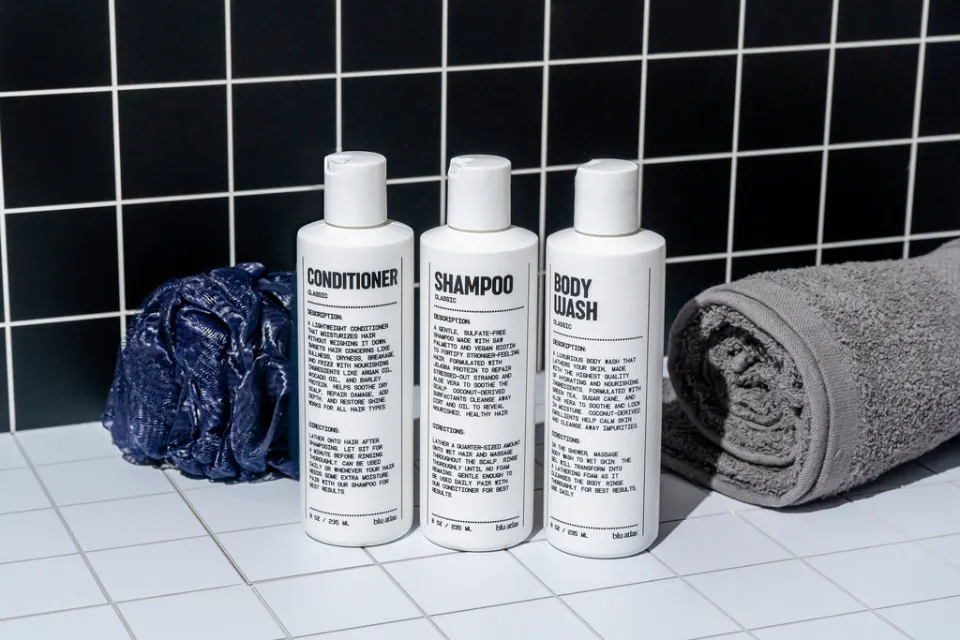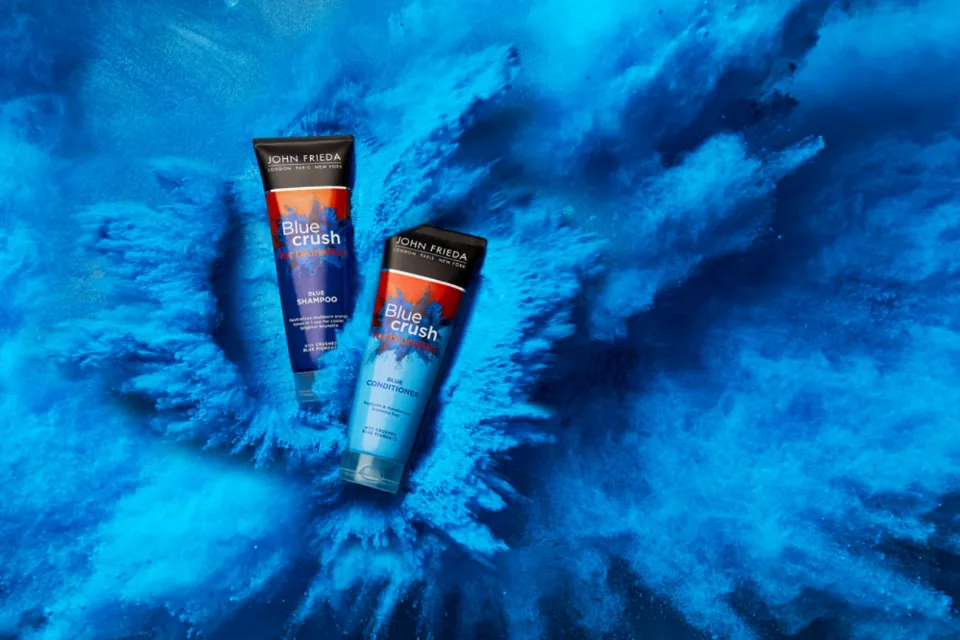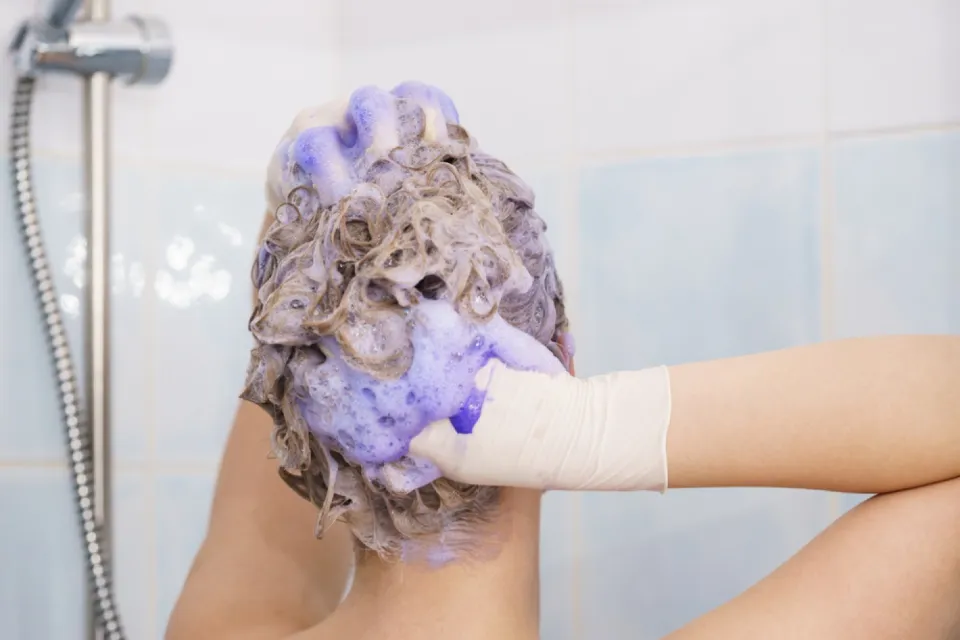Skin flakes on your scalp that are white and itchy and may be bothersome are known as dandruff. But how to get rid of dandruff?
There are a variety of ways to help treat dandruff. Tea tree oil and baking soda are examples of natural treatments that may be just as effective as pharmaceuticals.
Getting rid of dandruff can be a burden, this post will list ten easy home remedies to remove dandruff, keep reading!
What Are the Symptoms of Dandruff?
The obvious symptoms of dandruff are an itchy, scaly scalp and white oily flakes that accumulate in the hair or shoulders as they drop from the scalp.
Since the air is the driest in the fall and winter, they are also more likely to worsen, which is why you may have noticed an improvement.
Other, less frequent signs and symptoms include erythema (red patches on the scalp that can occasionally spread to the face), dandruff on the eyebrows, dry flakes of hair falling out, and scaling of the face skin.
How to Get Rid of Dandruff?
Here are ten tips to help get rid of dandruff.
1. Tea Tree Oil
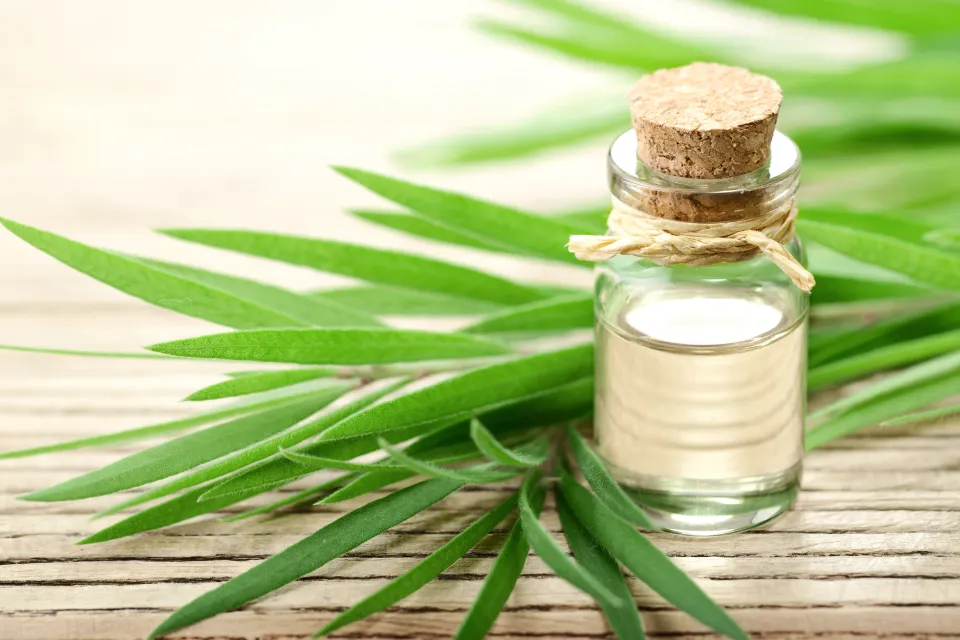
Tea tree oil has traditionally been used to treat skin conditions like psoriasis and acne.
It may also have antimicrobial and antifungal properties, which could help alleviate symptoms of dandruff.
One older review suggests that tea tree oil is effective at fighting Malazessia, which may cause both seborrheic dermatitis and dandruff.
Another study found that applying placental tissue soaked in tea tree oil to the skin was more effective than a prescription antifungal treatment for healing lesions caused by this fungus.
The benefits of tea tree oil still need to be fully established through high-quality research despite these studies.
Those with sensitive skin may also experience irritation from tea tree oil. So before applying it directly to your skin, it’s best to dilute it by adding a few drops to a carrier oil like jojoba or coconut oil.
2. Coconut Oil
As a well-known source of numerous health advantages, Coconut oil can be applied as a home treatment for dandruff.
Research suggests that it may improve skin hydration, prevent dryness, and decrease inflammation when applied as a moisturizer.
One older, 8-week study found that applying coconut oil to the skin reduced symptoms of atopic dermatitis by 68%.
In a 16-week study of 140 women, applying coconut oil to the scalp may have helped improve the scalp microbiome and certain markers of dandruff. More investigation is necessary, though.
Coconut oil and its compounds have also been shown to have antimicrobial properties in some test-tube studies. However, scientists haven’t yet looked into the effects of the specific fungus strain that causes dandruff.
3. Omega-3s
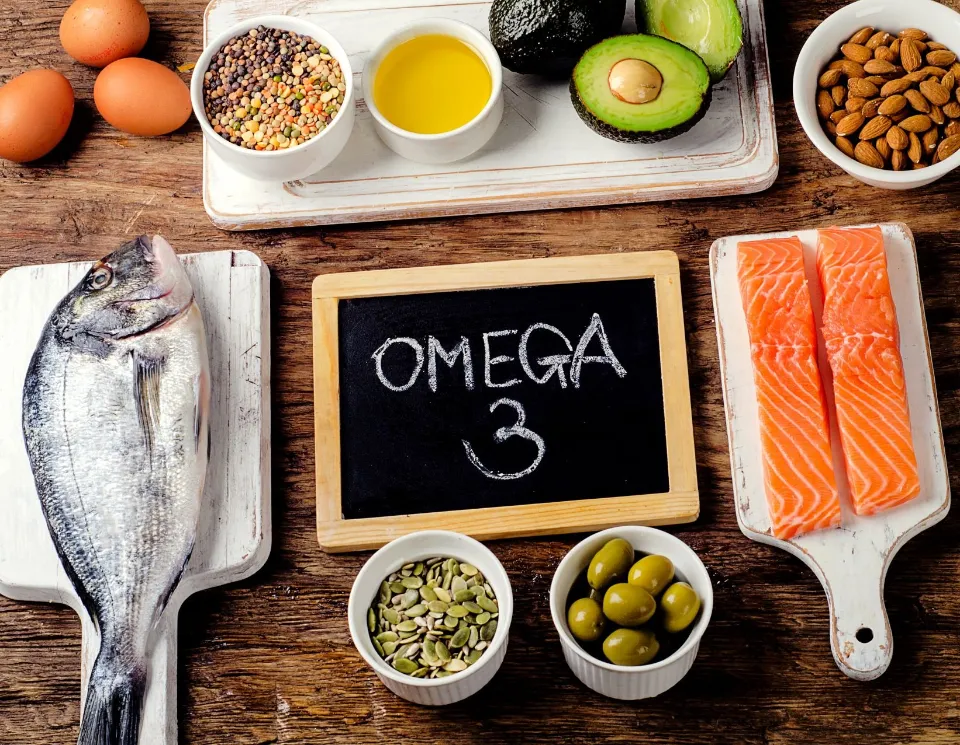
Your body depends heavily on omega-3 fatty acids.
Not only do they make up the cell membranes that surround your cells, but they’re also crucial for the function of your heart, immune system, and lungs.
Due to their ability to control hydration and oil production, speed up the healing of wounds, and delay the onset of premature aging, omega-3 fatty acids are also crucial for the health of your skin. A rash that is scaly, itchy, or rough may develop as a result of a deficiency.
Although more research is needed, omega-3 fatty acids may also help reduce inflammation, which may, in turn, relieve irritation and dandruff symptoms.
Foods that are rich in omega-3 fatty acids include:
- Fish like salmon, trout, and mackerel
- Seeds like chia and flaxseed
- Nuts such as walnuts
To help you up your intake, you could also take a fish oil supplement.
4. Aloe Vera
Succulent aloe vera is frequently used in lotions, cosmetics, and skin ointments.
When applied to the skin, it may help treat skin conditions like burns, psoriasis, and cold sores.
An older review suggests that aloe vera’s antibacterial and antifungal properties may help protect against dandruff.
Similarly, test-tube studies suggest that aloe vera may be effective against several species of fungi and may help control certain fungal infections.
Other test-tube studies suggest that aloe vera may reduce inflammation, which could relieve dandruff symptoms.
The need for more research remains despite these encouraging findings.
5. Apple Cider Vinegar
As a natural treatment for dandruff, apple cider vinegar has been linked to a number of health advantages.
It is thought that the acidity of the vinegar will encourage your scalp to shed its dead skin cells. In order to combat dandruff, apple cider vinegar is also said to balance the pH of your skin.
No studies, however, back up these assertions. Many of the alleged advantages of apple cider vinegar for dandruff are supported by anecdotal reports.
Applying diluted apple cider vinegar topically to the skin did not improve eczema or the integrity of the skin barrier, according to a small study involving 22 individuals. It even worsened skin irritation.
That said, older test-tube studies suggest that apple cider vinegar and its compounds may prevent the growth of certain types of fungus.
If you want to give apple cider vinegar a try, you can either mix a few tablespoons of it with your shampoo or combine it with a few drops of essential oils to create a spray that you can use to apply to your hair.
6. Aspirin
Salicylic acid is one of the primary compounds found in aspirin that’s responsible for its anti-inflammatory properties.
A lot of shampoos that fight dandruff contain this acid as well. It may help to get rid of scaly skin and loosen flakes so they can be removed.
19 participants with dandruff used either zinc pyrithione or piroctone olamine and salicylic acid shampoos during a previous four-week study. Both shampoos decreased dandruff, but the one containing salicylic acid was more effective in reducing the severity of scaling.
Another small study found that salicylic acid shampoo significantly reduced itch and irritation in 10 people with inflamed scalps.
Try chopping up two aspirin tablets and mixing the powder with your shampoo before washing your hair for an easy dandruff cure.
7. Probiotics
Probiotics are beneficial bacteria that have been linked to numerous health benefits, including allergy protection, lower cholesterol levels, and increased weight loss.
The immune system may be strengthened by these bacteria, which could aid your body in battling the dandruff-causing fungi.
One study suggests that taking probiotics for 56 days significantly reduced dandruff severity in 60 people.
Probiotics have also been shown to help treat and prevent skin conditions such as eczema and atopic dermatitis, especially in infants and children.
There is a wide selection of probiotic supplements. As well as fermented foods like kombucha, kimchi, and sauerkraut, they can be discovered in those foods.
8. Baking Soda
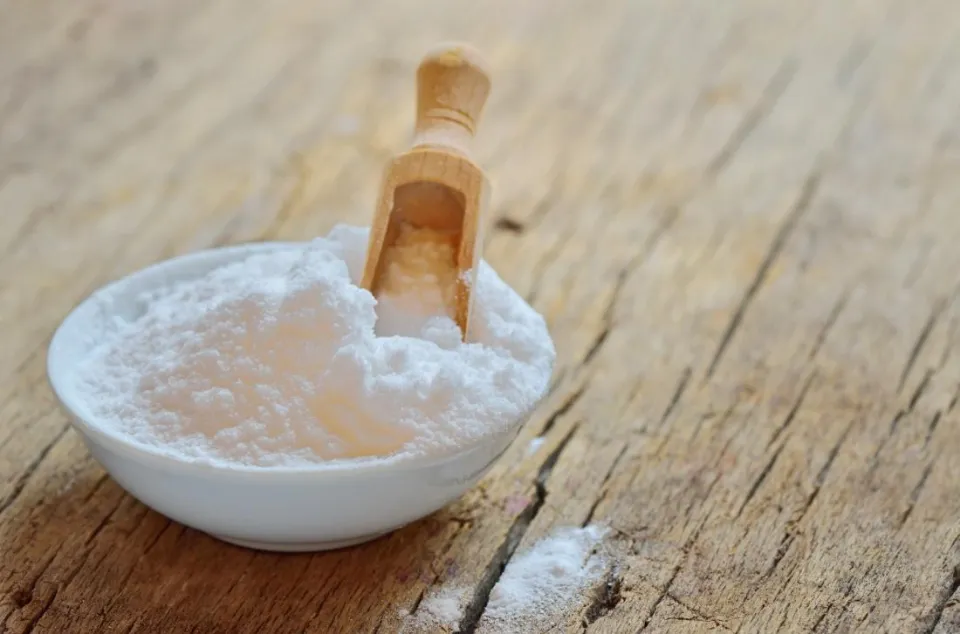
A simple, practical, and accessible treatment for dandruff is baking soda.
It might work as a mild exfoliant to help get rid of dead skin cells and lessen scaling and itching. Additionally, it has antifungal qualities that might aid in the treatment of dandruff.
An older test-tube study measured the antifungal effects of baking soda on some of the most prevalent fungus strains that cause skin infections. It suggests that baking soda completely inhibited fungal growth in 79% of specimens after 7 days.
An older study examined the effects of baking soda on 31 individuals who had psoriasis. Treatment with baking soda baths significantly reduced both itchiness and irritation after just 3 weeks.
However, more research is needed, as one study found that baking soda had no effect on psoriasis, skin hydration, or skin redness.
Apply baking soda to wet hair and gently massage it into the scalp for best results. Then, proceed as usual with shampooing your hair after letting it sit for a minute or two.
9. Minimize Stress Levels
Stress is believed to affect many aspects of health and wellness, influencing everything from chronic conditions to mental health.
While stress itself doesn’t cause dandruff, it may worsen symptoms such as dryness and itching.
One older analysis suggests that long-term high stress levels may also alter or suppress your immune system’s activity. This could make it harder for your body to fight off fungus infections and skin conditions that cause dandruff.
In another older study of 166 people with seborrheic dermatitis, approximately 28% reported that stress was a trigger for dermatitis symptoms.
Deep breathing, yoga, meditation, and other stress-reduction methods can all help you keep your levels of stress under control.
10. Avoid Certain Foods
Some people may discover that limiting their intake of particular foods can help reduce inflammation, which may enhance the health of their scalp. The connection between diet and dandruff, however, requires more study.
Dietary modifications may prevent fungal infections by controlling yeast growth and improving the gut microbiome, which may aid in the treatment of dandruff.
Some foods that you may want to limit are:
- refined carbs, like white bread, pasta, and crackers
- red meat
- processed foods
- fried foods
- sugary foods and beverages
Furthermore, some foods may cause flare-ups of skin conditions like eczema, which can worsen dandruff.
While specific trigger foods vary from person to person, some of the most common are white flour, gluten-containing products, and nightshades such as eggplants, peppers, and tomatoes.
Read More: Does Hard Water Cause Dandruff?
When to See a Doctor for Dandruff Treatment?
After trying over-the-counter remedies, consult a doctor if you’re still shedding and scratching.
Use a prescription shampoo or topical medication if the dandruff is particularly difficult to treat.
The Bottom Line: How to Get Rid of Dandruff
Dandruff can be an itchy, irritating problem to deal with. Nevertheless, a number of natural treatments could ease your symptoms and help.
In the event that these home remedies for dandruff don’t work, consult a physician to determine whether additional therapies may be required to deliver long-lasting relief.
FAQs
Can Dandruff Go Away on Its Own?
While dandruff and dry scalp are cyclical conditions, dandruff brought on by a fungal infection is unlikely to improve on its own.
Does Scratching Dandruff Make It Worse?
Scratching dandruff is strongly discouraged by medical professionals because doing so can aggravate an area of skin that is already inflamed.


